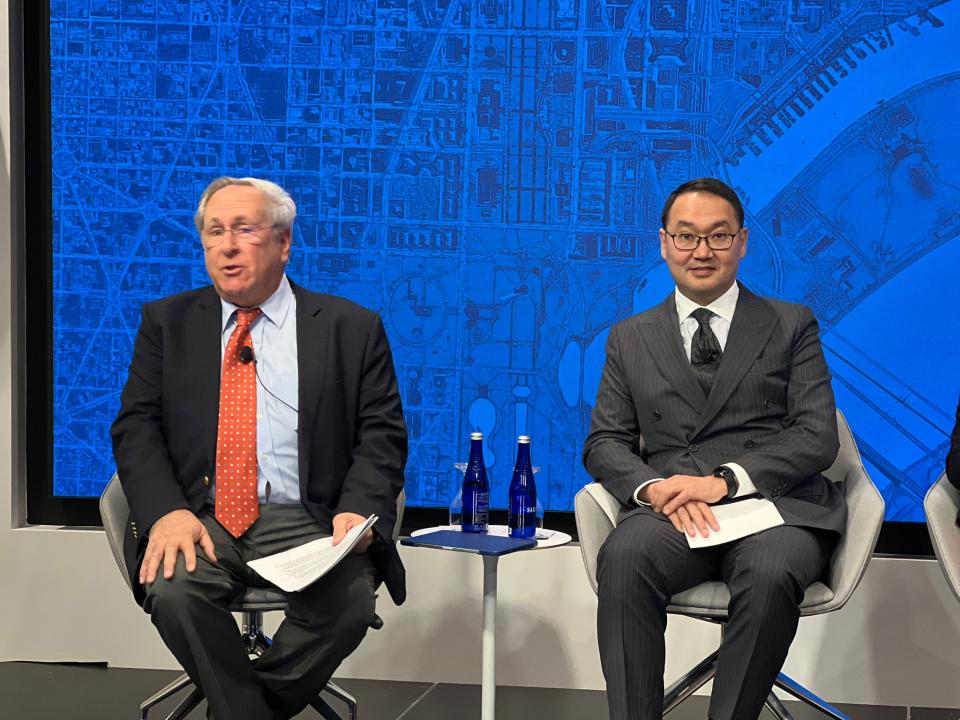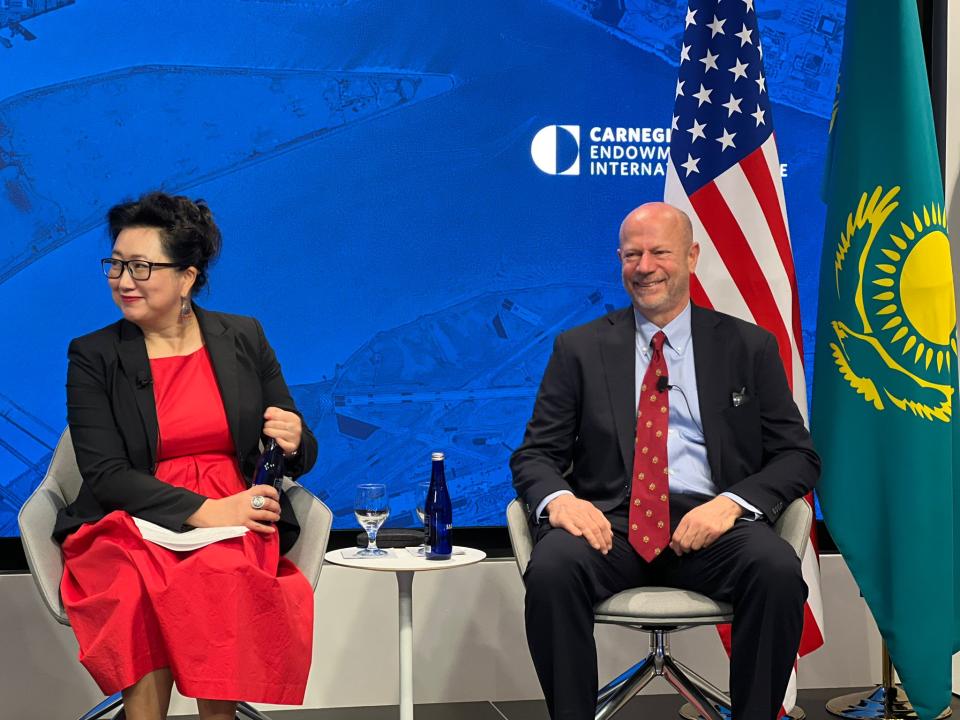The 30th Anniversary of “Project Sapphire” Commemorated in Washington, DC, DKnews.kz reports.
The Carnegie Endowment for International Peace, in collaboration with the Council on Strategic Risks (CSR), hosted a panel discussion on the theme “Project Sapphire at 30: U.S.-Kazakh Cooperation to Reduce Nuclear Threats.”
The discussion featured Kazakhstan’s Ambassador to the U.S., Yerzhan Ashikbayev; senior CSR fellow and former U.S. Assistant Secretary of Defense Andrew Weber, who participated in the Project Sapphire; and Carnegie Endowment senior fellow Togzhan Kassenova. The discussion was moderated by renowned journalist and Pulitzer Prize winner David Hoffman.

The participants highlighted the success of the collaboration that led to the removal of approximately 600 kilograms of highly enriched uranium from Kazakhstan on November 23, 1994. The mission was recognized as a vital step in enhancing global security and promoting nonproliferation.
Ambassador Ashikbayev emphasized Kazakhstan’s unwavering commitment to the principles of nuclear disarmament and nonproliferation, noting the nation’s active contributions to international security. He stated that the Project Sapphire “stands as a vivid example of what can be achieved when nations cooperate based on mutual trust and shared goals.”
The Ambassador also highlighted Kazakhstan’s efforts as a middle power to bolster international security beyond the nuclear domain, including initiatives in biological security. In this context, he underscored the importance of President Tokayev’s initiative to establish an International Agency for Biological Safety as a crucial step in countering global threats.
In his remarks, Andrew Weber noted that Kazakhstan’s decision to relinquish nuclear weapons was a pivotal move that secured the country’s safety, stability, and prosperity. He stressed that this experience serves as an example for other nations, demonstrating how prioritizing peace and cooperation contributes to building a brighter future.
Togzhan Kassenova emphasized the importance of strengthening the international nonproliferation regime and continuing joint efforts to mitigate nuclear risks. She remarked that “this operation deserves study not only as a significant event in the history of modern Kazakhstan but also as an example of the power of trust, visionary leadership, and cooperation in overcoming global challenges.”

The panelists also underscored the necessity of further strengthening international collaboration to address not only nuclear threats but also the proliferation of other weapons of mass destruction. They noted that such efforts require shared responsibility, trust, and continued open dialogue among all stakeholders.
The event concluded with a Q&A session, during which attendees had the opportunity to ask questions about global security and exchange views on future prospects for cooperation in nonproliferation and other WMD-related issues.







